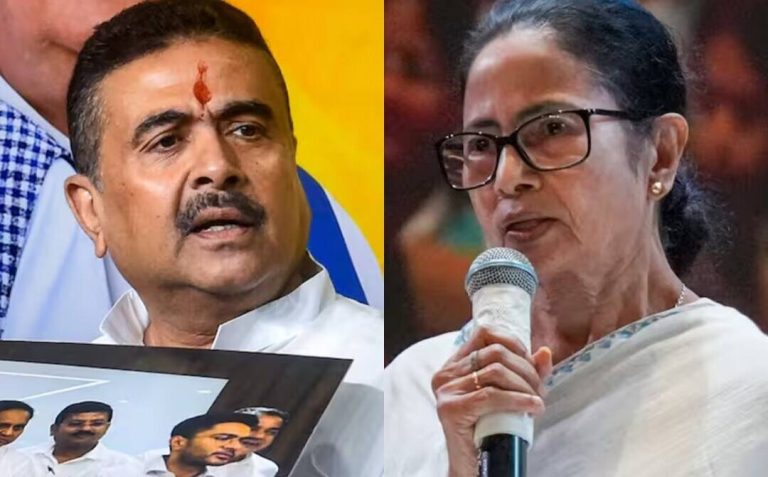
They’ll sentence her to die but she’s safe in India: Hasina’s son ahead of verdict
The world is watching with bated breath as a Dhaka court is set to pronounce its verdict on charges against ousted Bangladesh Prime Minister Sheikh Hasina. The anticipation is palpable, and the stakes are high. In a recent interview, Sheikh Hasina’s son Sajeeb Wazed expressed his concerns about the outcome of the verdict, stating that he expects his mother to be convicted. However, he also added that his mother is “safe in India,” which has sparked a mix of curiosity and relief among her supporters.
Sajeeb Wazed’s statement has sent shockwaves across the globe, with many questioning the fairness of the trial and the potential consequences of a guilty verdict. “We know exactly what the verdict is going to be. They’re televising it…They’ll probably sentence her to death,” said Sajeeb, his words laced with a sense of resignation and foreboding. The fact that the verdict is being televised has only added to the drama and tension surrounding the case, with many wondering if the outcome is already a foregone conclusion.
Sheikh Hasina, a prominent politician and former Prime Minister of Bangladesh, has been facing charges related to corruption and embezzlement. Her supporters argue that the charges are politically motivated and designed to discredit her and prevent her from returning to power. The trial has been widely criticized for its lack of transparency and fairness, with many alleging that the judiciary is under pressure from the current government to deliver a guilty verdict.
The fact that Sajeeb Wazed expects his mother to be sentenced to death is a grim reminder of the high stakes involved in this case. Death sentences are not uncommon in Bangladesh, and the country has a history of executing politicians and activists who have been deemed a threat to the ruling party. The prospect of Sheikh Hasina facing the death penalty has sent shockwaves across the globe, with many human rights organizations and governments expressing their concern and outrage.
However, Sajeeb Wazed’s statement that his mother is “safe in India” has provided some comfort to her supporters. India has a long history of providing shelter and protection to political refugees and asylum seekers, and it is likely that Sheikh Hasina will be granted refuge in the country if she is sentenced to death. The Indian government has a tradition of providing sanctuary to those who are fleeing persecution and violence, and it is likely that they will extend the same courtesy to Sheikh Hasina.
The verdict in the Sheikh Hasina case is expected to have far-reaching consequences for Bangladesh and the region. The country is already polarized, with many supporting Sheikh Hasina and her party, while others back the current government. A guilty verdict and death sentence could spark widespread unrest and violence, potentially destabilizing the region. The international community is watching the situation closely, with many calling for calm and restraint.
In the midst of this uncertainty and tension, Sajeeb Wazed’s statement has provided a glimmer of hope for Sheikh Hasina’s supporters. While the prospect of a guilty verdict and death sentence is a grim one, the fact that she is “safe in India” provides some comfort and reassurance. As the world waits with bated breath for the verdict, one thing is clear: the outcome of this case will have far-reaching consequences for Bangladesh, the region, and the world.
The Sheikh Hasina case is a stark reminder of the challenges faced by politicians and activists in countries with a history of political repression and violence. The use of the judiciary to silence and intimidate opponents is a common tactic employed by authoritarian regimes, and it is a threat to democracy and human rights. The international community must continue to speak out against such practices and support those who are fighting for justice and freedom.
As the verdict in the Sheikh Hasina case is pronounced, the world will be watching with great interest and concern. The outcome of this case will have significant implications for Bangladesh, the region, and the world. While Sajeeb Wazed’s statement has provided some comfort to Sheikh Hasina’s supporters, the fact remains that the stakes are high, and the consequences of a guilty verdict could be severe. The international community must continue to monitor the situation closely and speak out against any attempts to silence or intimidate Sheikh Hasina and her supporters.
In conclusion, the Sheikh Hasina case is a complex and sensitive issue that has far-reaching consequences for Bangladesh, the region, and the world. While Sajeeb Wazed’s statement has provided some comfort to her supporters, the fact remains that the stakes are high, and the outcome of the case is uncertain. The international community must continue to speak out against political repression and violence, and support those who are fighting for justice and freedom.






